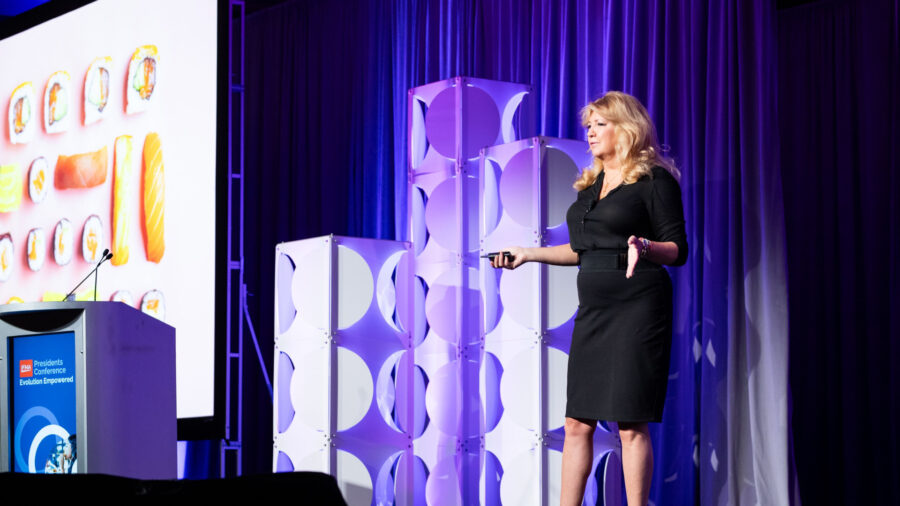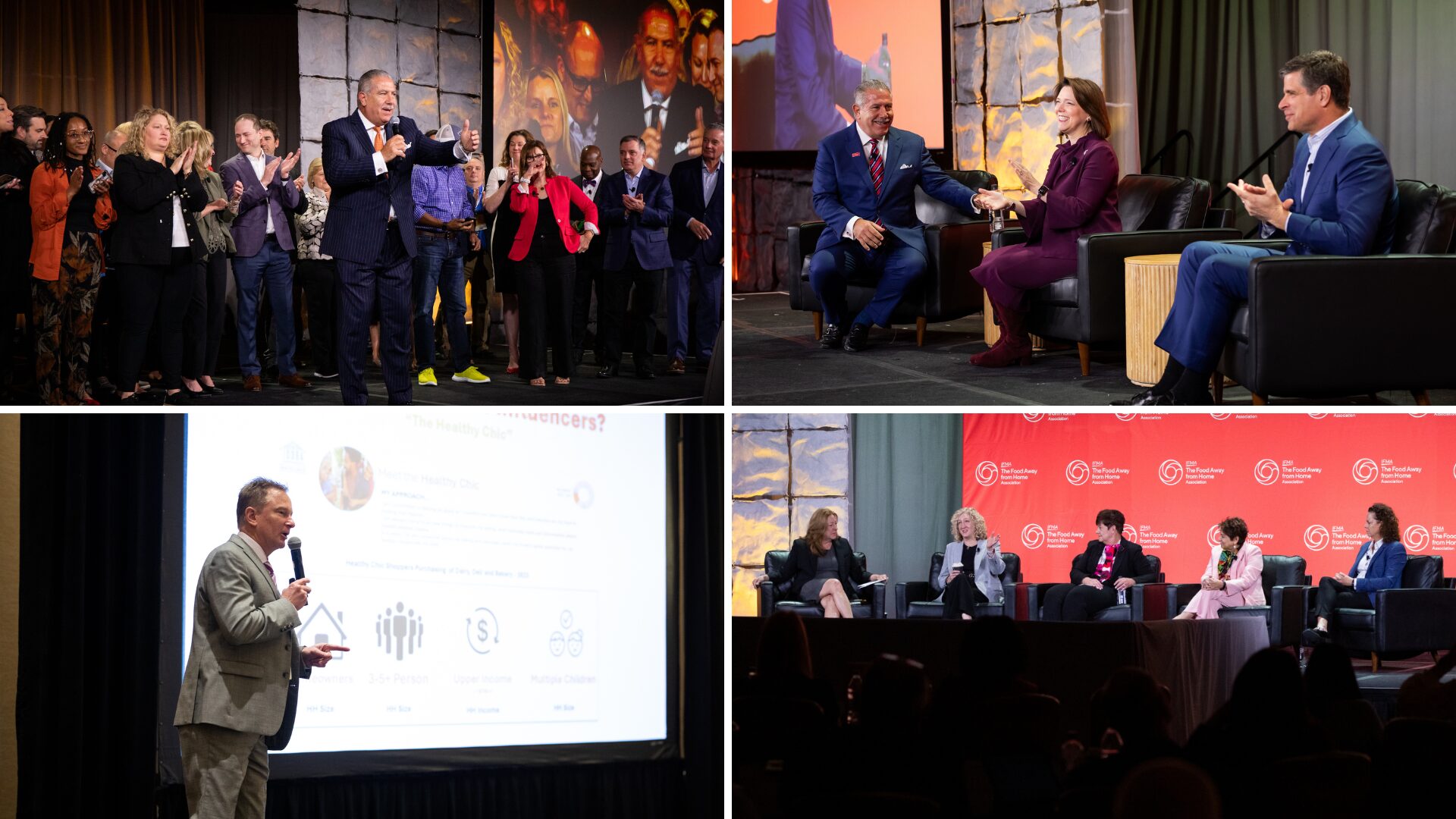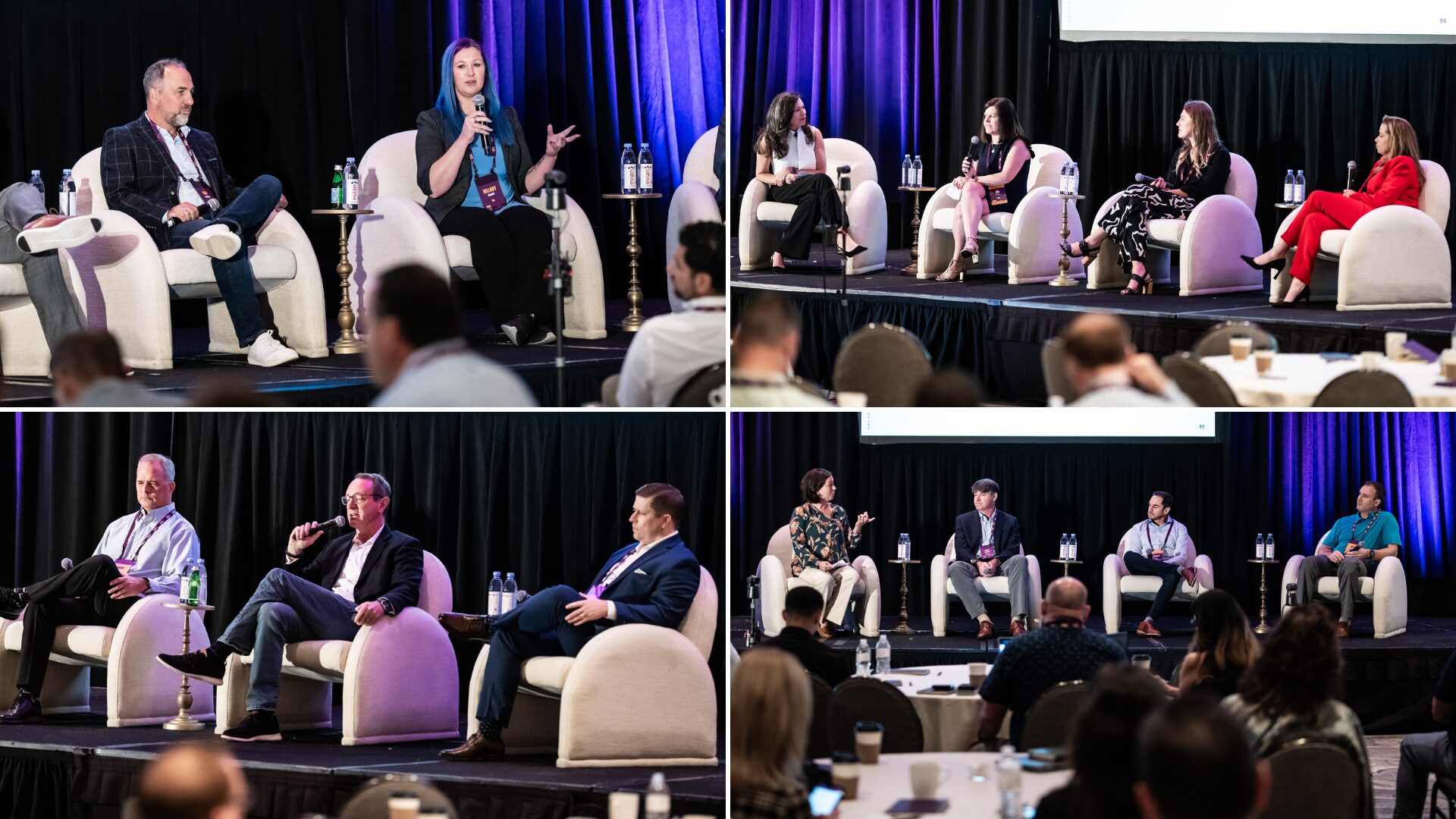SCOTTSDALE, ARIZ. – For the food-away-from-home (FAFH) ecosystem to succeed, stakeholders including operators, manufacturers, distributors, and service providers will need to work more closely than ever before. That was one of the major themes on display at the 2023 IFMA Presidents Conference, held at the Fairmont Scottsdale Princess Nov. 5 through Nov. 7.
And how would the industry work to address these challenges? Evolution Empowered, the meeting’s tagline, immediately set the tone for the event, which included data- and insights-driven presentations, an overview on the new direction IFMA is taking, and even networking events like a smoked mixology experience.
Seismic Shifts Affecting Food Away from Home
The COVID-19 pandemic, food price inflation, and labor availability are among the major challenges facing the industry as larger issues like geopolitical instability, resource depletion, and a need for energy could all press on the FAFH ecosystem in the years to come.
Pippa Malmgren, an economist with experience in geopolitics, delivered the keynote address at the IFMA Presidents Conference and highlighted emerging technologies that could bring humanity from a scarcity mindset to one of abundance.
“We are all accustomed to thinking in terms of scarcity, and what I’m describing to you is a world where abundance is a genuine possibility. And given how much time we spend catastrophizing and worrying – given all the headlines about geopolitics and about the downside of everything – I would like to take this moment to help you think a little bit about upside,” she said.
From the mining of asteroids to the harnessing of solar energy to the deployment of in-space factories, human ingenuity can provide solutions to many of these issues. She said the space programs of the U.S., China, Russia, India, and even Rwanda are catalyzing progress that could be harnessed here on Earth.
To best leverage these emerging technologies, Malmgren noted many business leaders who were trained to be analytic would need to embrace imagination.
“Imagination is not a skill that schools are teaching, or that any of us are terribly encouraged to spend time and energy on. But I love the quote from Mark Twain where he says, ‘The eyes cannot see clearly if the imagination is out of focus.’ And so how do we get our imagination into focus?”
Focusing More on Artificial Intelligence
Valerie Gong, a managing director and principal with Boston Consulting Group, shared that she had seen a broad acceleration of the digital agenda in the foodservice space: 56% of customers expect offers to be personalized; 73% expect companies to understand their unique needs and expectations; and 62% expected companies to anticipate customer needs.
What is the best way to address these consumer concerns? Artificial intelligence (AI) was certainly one avenue to do so, according to Gong, as it can automate many mundane tasks.
“In the next wave, we expect innovation to play out at an even more accelerated pace with the potential to drive competitive advantage for those who get it right…there’s a whole range of AI applications that are being tested right now in the industry. We believe that AI is a technology that will fundamentally change how we work and how we interact with our customers,” she said.
Priya Thinagar, executive vice president of technology with Olo, started with a thought-provoking question about the FAFH industry:
“What will the restaurant of the future look like? Perhaps a better question is what will guests expect in the years ahead?”
She shared some solutions her company had developed that leveraged AI to better meet consumer needs. If consumers opted in to the Olo platform, their dining preferences could be shared across restaurants so that waiters could present actionable menu options based on prior dining history and even wish a couple a happy anniversary in a seamless fashion.
She also pointed to the power of AI in the drive-thru lane. The technology could read a license plate and connect it to a diner’s profile. Using this information, AI would be able to provide recommendations based on past order history to provide a personalized experience for the customer.
A New Vision for IFMA Moving Forward
At the 2023 IFMA Presidents Conference, IFMA CEO Phil Kafarakis shared a new vision for the association: Level Up 2027.
The plan aims to expand IFMA’s membership to include manufacturers, operators, supply chain operators, and service providers to improve collaborative efforts across the industry. Kafarakis shared in detail the purpose, vision, and mission for IFMA and the reasoning behind its evolution.
- Purpose: To empower, nurture, and connect the food-away-from-home ecosystem so it may thrive and responsibly meet consumer needs.
- Vision: To champion an inclusive Food-Away-From-Home ecosystem that collaborates to build innovative solutions that advance the industry.
- Mission: Be the agent of change leading a dynamic, transparent, and engaged Food-Away-From-Home community that will help grow our members’ businesses.
Additionally, he highlighted that threats to the entire FAFH ecosystem would impact all stakeholders in the sector, and that these threats could be tackled via collaboration.
“We see a void when it comes to opportunities for bringing the larger community together. So we will offer a coming-together-place where trading partners can form true partnerships, because solutions to one’s problems can often be found in another’s best practices,” Kafarakis said.
Expanding Representation Through DEI
As part of the Level Up 2027 plan reveal, IFMA shared its new diversity, equity, and inclusion (DEI) mission: “to champion an inclusive food-away-from-home ecosystem that collaborates to build innovative solutions that advance the industry.”
The organization also shared a DEI mission, which was as follows: “IFMA is intentional in our internal practices, member offerings, and external outreach to actively solicit and value diverse perspectives.”
To that end, Kafarakis invited Therese Gearhart, CEO and president of the Womens Foodservice Forum, to share her perspectives on the importance of DEI. She lauded the foodservice industry for the work it had already done and noted there was still more to do.
“For every 100 men that are promoted, it’s only 87 women. And for women of color, it’s only 73. Right? So if that’s not fixed, you can’t build a pipeline that’s ever going to put us in a place where you’re going to change it across the board,” she said.
Collaboration On Full Display at IFMA Presidents Conference
To further emphasize a new focus on collaboration, IFMA unveiled five sector-specific guidebooks developed by their Foodservice Leadership Councils that were produced in partnership with Kinetic12.
Tim Hand, partner with Kinetic12, explained they were designed to boost business and connections between different stakeholders in FAFH ecosystem.
“When we started developing these, we said, this is an opportunity for you to speak to the supplier-manufacturer members. What would you like to say that would help them do business with you?”
The guidebooks focused on the elementary and secondary education segment; the college and university segment; a business and industry sustainability playbook; best practices for the healthcare sector; and a restaurant margin optimization model, which were being made available for IFMA members.
While the FAFH ecosystem is at a crossroads and some changes are needed, it was encouraging to see all stakeholders, including foodservice manufacturers, operators, distributors, and service providers, come together in the spirit of collaboration to address these challenges head-on.












